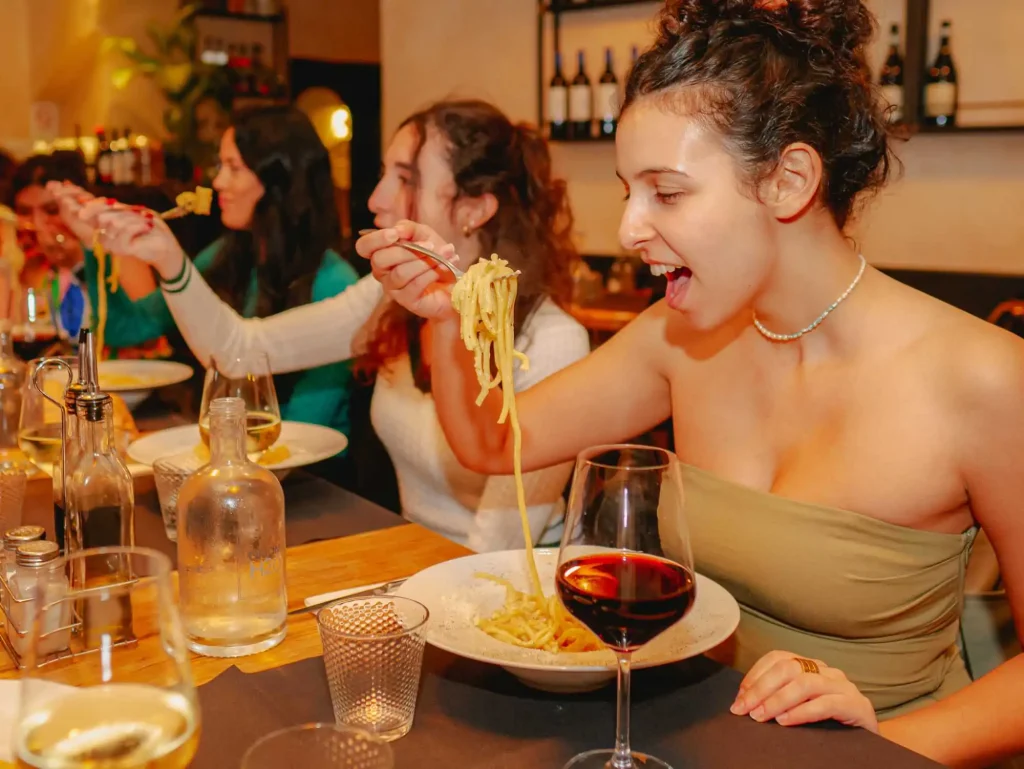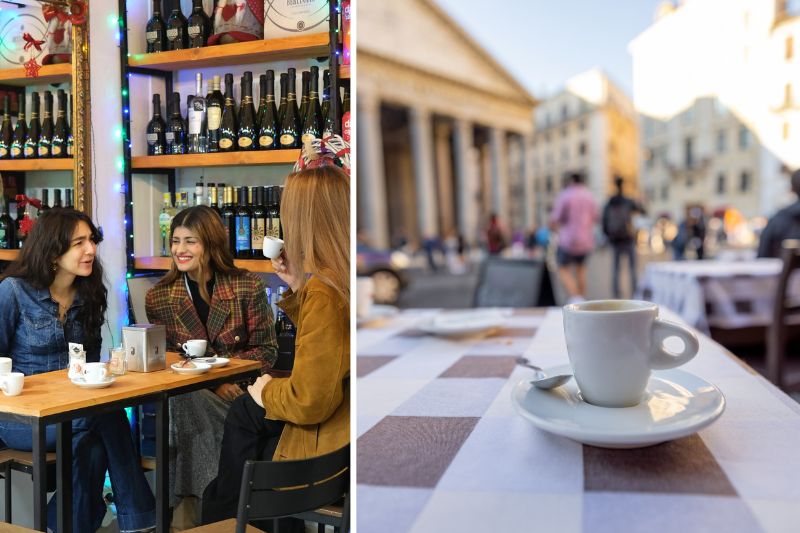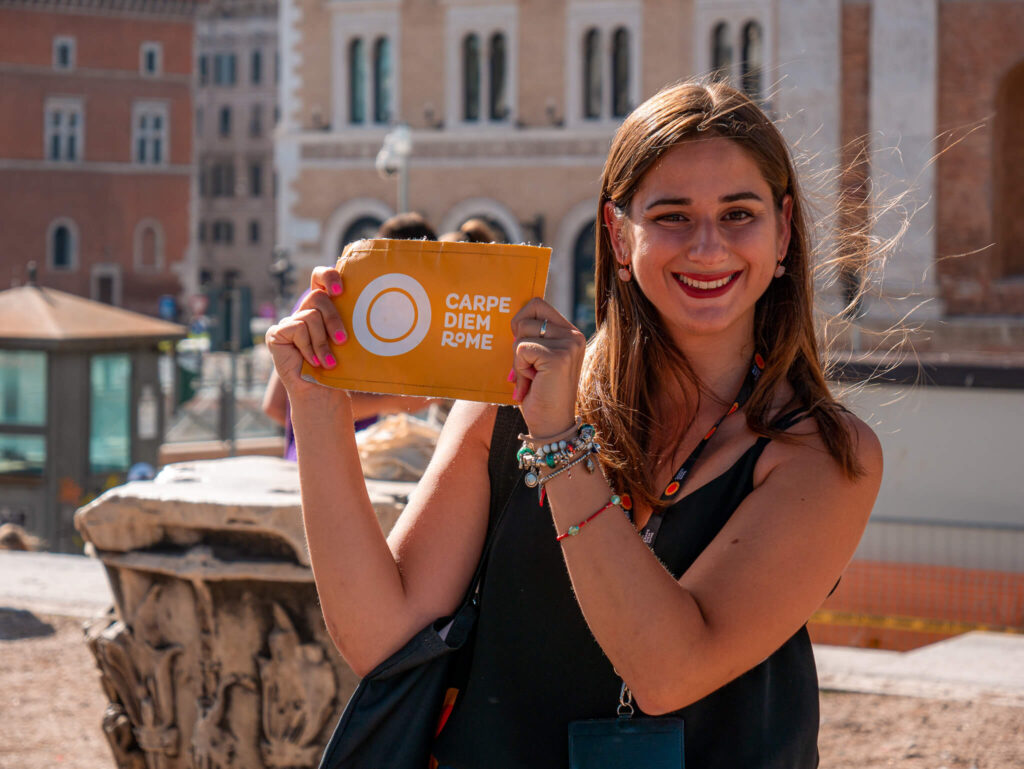
GUIDED TOURStarting at €95.00
Trastevere Rome Food Tour
Tipping is not customary in Italy, but it is always appreciated. Generally, the tourism and hospitality industries are the main areas where you’ll encounter this practice, and jobs in these fields are usually well-compensated. However, it’s worth noting that Italy does not have a national minimum wage, and salaries in tourism and hospitality can be lower than in other sectors, averaging between €28,000 to €32,000 annually in 2023.
Understanding Tipping in Italy
It’s best to tip with cash as many card readers impose transaction fees and recipients can declare cash tips at their discretion. With high taxes in Italy, many workers in the tourism industry—such as waiters, hotel staff, drivers, and guides—rely on tips to supplement their income and maintain a standard of living similar to that in the US.
Tipping in Restaurants
The first consideration is whether your restaurant includes a service charge (called servizio). In tourist areas, this can be around 10% to 15% of the bill. If a service charge is included, additional tipping is not required. However, if no such charge is added, it’s customary to leave a tip of a few Euros, usually no more than 10%.
Tipping in restaurants is not mandatory and should be reserved for good service or a standout dining experience. Keep in mind that servers in Italy do not rely on tips for a living wage, so don’t feel obligated to tip if the service was not exceptional.
For high-end dining experiences, such as Michelin-starred restaurants or those offering tasting menus, a tip of around 10% is typically expected.

Tipping in Trattorias and Osterias
Trattorias and Osterias are informal Italian eateries with a cozy atmosphere. As with restaurants, tipping is not expected. However, when paying in cash, it’s common to leave the change as a tip. For example, if your bill is €37 and you pay with €40, you should leave the €3 change as a tip. If paying by card, tipping is usually not anticipated.
Cover Charge (“Coperto” or “Pane e Coperto”)
Many Italian restaurants implement a table charge (pane e coperto) per person, which covers bread and olive oil served before the meal and acts as a reservation for your table. This charge is indicated on the menu and does not replace a tip.
Tipping in Bars and Cafés
No tip is expected when enjoying your coffee and cornetto at the bar, but leaving €0.10 to €0.20 is appreciated. Since table service usually includes a service charge, tipping is unnecessary there, though you can round up the bill for exceptional service.
It’s essential to note that there can be a significant price difference between standing at the bar and seated table service, as seating is in high demand in Italy. For a quick coffee and pastry, standing is generally the more economical option.

Tipping Drivers in Italy
Whether to tip your driver depends on the service type and quality.
For private transfers, a tip of €5-10 is common for shorter trips, while longer excursions or full-day services might warrant a €15-20 tip. If your transfer was arranged through a travel agency, be sure to check if driver tips were included in the fee.
Should You Tip Taxi Drivers in Italy?
Typically, tipping taxi drivers is unnecessary, especially for airport trips. This is particularly true in Rome, where taxi drivers are often known for inflating fixed fares and insisting on cash payments.
Refer to our Guide to Getting Around Rome to ensure you’re not overcharged.
How to Tip Tour Guides in Italy
Tipping your tour guide often depends on the tour’s duration and quality, as well as whether it’s a private tour. For a half-day tour, a €20 tip is typical; for a full-day tour, you might consider a €50 tip. It’s customary to tip your guide on “free tours,” as they rely on tips for their compensation.

Tipping in Hotels in Italy
While not required, tipping is appreciated in Italy’s hospitality industry. You might consider tipping porters €1-2 per bag, while housekeeping might receive €1-2 per day. You can leave this amount either daily or at the end of your stay. For room service and concierge services, a tip of €5-10 is generally expected for good service.

Alexander Meddings is a professional copywriter and holds a postgraduate degree in Roman history from the University of Oxford. After completing his MPhil, he moved to Florence and then Rome to conduct research on-site and nurture his passion for the subject. He now works in travel as a writer and content consultant and serves in education as a university lecturer and translator.





